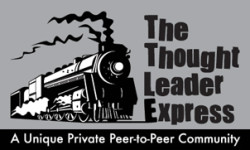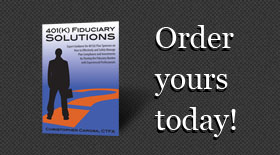CITs can only be offered within the confines of a trust relationship. That means the plan itself might be structurally different than one that has an investment menu limited to mutual funds.
Basic Members

Eliminating the match and investing a large portion of retirement savings in bonds creates a risk. It may cause the retirement savings to go down in flames.

Let’s take some time off this week to reflect why we’re thankful for the 401k.

Between the IRA Rollover matter and the redefinition of “regular services,” there is no shortage of ways to chip away at the new Rule. What might be one way we can expect to see the industry attack the Rule in front of a judge?

This broader definition of fiduciary may impose a potential hardship on a segment of the retirement industry that has been trying hard to gain a foothold in plan infrastructure.

In the spirit of the season, one might even think of this as “tricking” employees to save. Plans sponsors are already using these tricks.

The DOL seems to use the same metric that it earlier employed in its statement on the Fiduciary Rule. Still, the Advisory Opinion is very precise in what it allows. Citi will have to tread carefully to not cross the line into the realm of fiduciary.

Participation is one thing. It’s critical that retirement savers build on the momentum of participation and use that to increase the amount of dollars that get contributed to their article. How can plan sponsors facilitate this?

How strong an argument is there for auto-enrollment? Remember, the key feature of the 2006 Pension Protection Act was to encourage auto-enrollment. The SECURE Act has even stronger language.











Will These Be The Biggest 401k Fiduciary Stories In 2024?
If you have any experience in the retirement plan business, some predictions just write themselves. As in “an incredible feeling of déjà vu.”